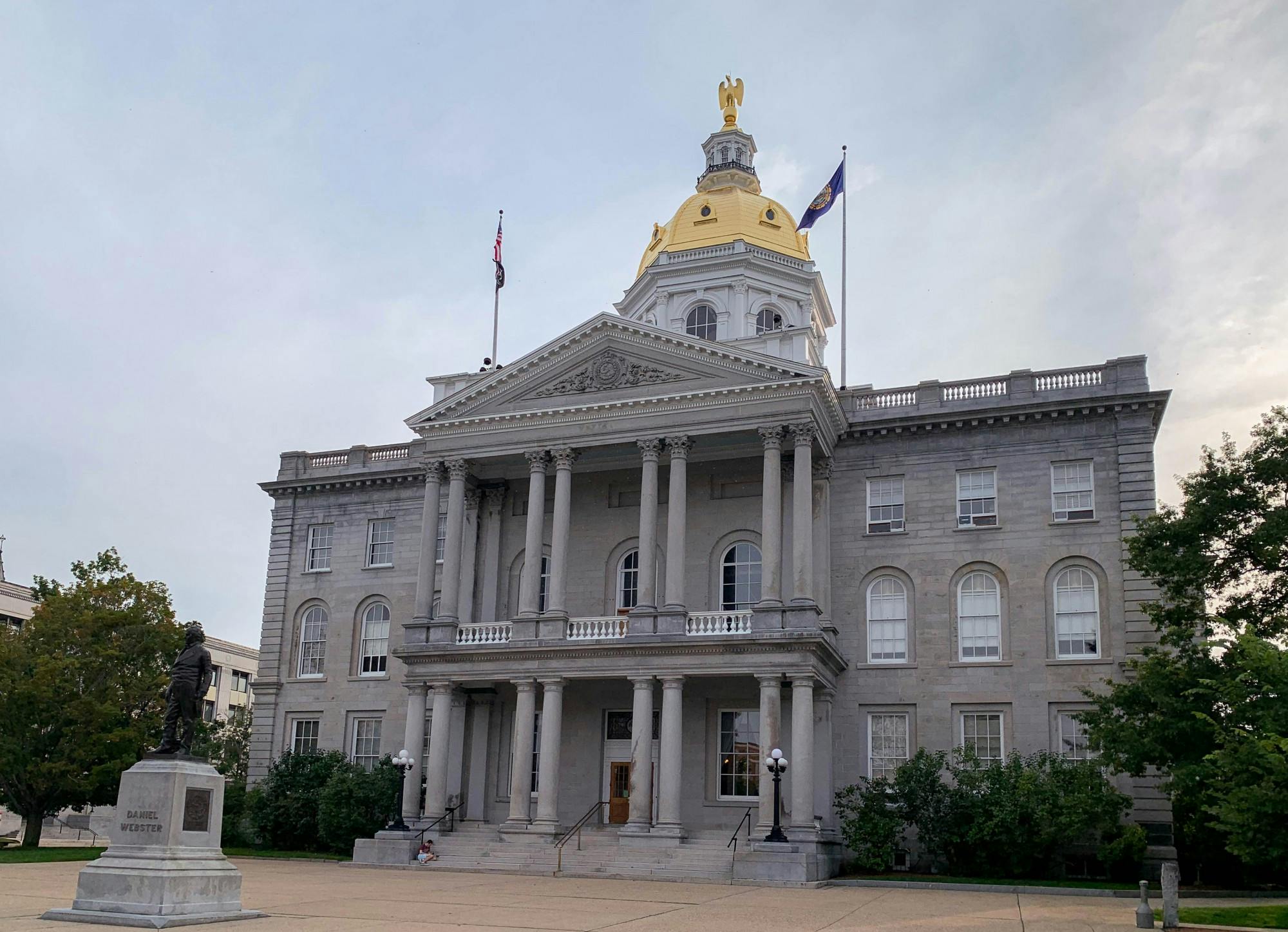As the New Hampshire state House of Representatives returned to session this week, representatives voted Thursday on several bills pertaining to COVID-19 vaccination and mask mandates. One of the most controversial of these bills, H.B. 255, would have prevented private businesses, schools, universities and government agencies from requiring COVID-19 vaccinations from people who object for medical reasons, religious beliefs or “personal conscience.” The bill was tabled by the House on Thursday by a vote of 213-142, meaning that it will be postponed for consideration until a later time.
163 Democrats and 49 Republicans voted to table the bill, with 141 Republicans and 1 Democrat voting against the motion to table. All four of Hanover’s Democratic representatives — Russell Muirhead, Mary Hakken-Phillips, James Murphy and Sharon Nordgren — voted to table it.
Originally proposed as a bill to limit the liability of businesses and colleges for illness resulting from exposure to COVID-19, representative Rick Ladd, a Republican from Haverhill, added an amendment on Nov. 8 to prohibit private vaccine mandates. The amended bill passed the House Education Committee on Nov. 15 by an 11-8 vote, with one Democrat, Barbara Shaw of Manchester, voting in favor of the bill.
State representative and government professor Russell Muirhead, D-Hanover, said that the amended bill was another “thoughtless” and “destructive” piece of legislation that would stop private businesses from enforcing a “perfectly reasonable” condition of employment. He added that the bill’s incongruencies with President Joe Biden’s executive order requiring private businesses with more than 100 employees to mandate vaccines or testing of their employees by Jan. 10 raise an “enforcement question.”
“The bill would generate a lot of litigation, a lot of expense and distraction for the attorney general’s office,” Muirhead said. “In the end, I don’t think it would prove to be enforceable.”
Muirhead added that this bill was promoted by “extremists” in the Republican governing coalition, who he argued have made it their goal to promote “controversial” bills during this legislative session. He mentioned that while the state Republican Party generally “hates regulation,” this bill would involve the government telling private companies what they “can or can not do.”
Similarly, state representative JC Allard, a Republican from Pittsfield, said that the bill represented a “grotesque overreach” of the state government’s power. Allard also said that he was opposed to the bill because the amendment to H.B. 255 is a “non-germane amendment” — a rare type of amendment that is largely unrelated to the original bill. Allard also voted to table the bill.
“Under this bill, the state would be dictating that Dartmouth could not make a decision for itself based on the health needs of its faculty, staff and student body,” Allard said. “It’s not the business of the legislature to do this.”
Under the College’s own vaccine mandate and Biden’s executive order requiring federal contractors to comply with vaccine mandates, Dartmouth currently asks its employees who have access to campus and work remotely to submit proof of full vaccination against COVID-19 or obtain a medical or religious waiver. College spokesperson Diana Lawrence declined to comment on the “hypothetical situation” of the bill’s passage.
Allard added that he had previously served on the House education committee but was reassigned by House speaker Sherman Packard, a Republican from Londonderry, to the fish and game and marine resources committee due to his concerns about the bill.
State representative Betty Gay, a Republican from Salem, said the she was “strongly” in favor of the bill, claiming falsely that the COVID-19 vaccines are “ineffective” at preventing the spread of COVID-19 and can cause “dangerous” side effects. There is no evidence for either of these claims — numerous studies have demonstrated the effectiveness of vaccines at reducing the risk of serious illness and death, and while the Centers for Disease Control and Prevention have identified instances of patients experiencing severe side effects, these cases are exceedingly rare.
Gay voted against the motion to table.
“It’s really critical that we pass this bill to give people personal freedom to decide what goes into their body,” Gay said. “Personal rights trump business rights.”
Upper Valley officials have expressed mixed reactions on the matter. Hanover town manager Julia Griffin said that H.B. 255, which is among 30 other bills currently under consideration involving COVID-19 vaccination and masking requirements, could impact Upper Valley businesses that operate in both New Hampshire and Vermont.
“I feel bad for businesses like Co-op food stores, which has locations in White River Junction, Hanover and Lebanon,” Griffin said. “It’s complex legal terrain.”
Upper Valley Business Alliance director Tracy Hutchins said that UVBA as an organization has not taken “any official position” on the bill but is trying to “stay on top” of the legislation to keep its members informed.
“Some of our members, both large businesses affected by the federal mandate and smaller businesses, have implemented their own vaccine mandates,” Hutchins said. “On the other hand, we have some businesses who are worried that imposing a vaccine mandate might make it more difficult to recruit employees amid severe staffing shortages.”




